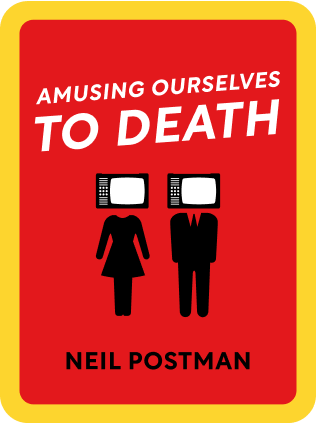

This article is an excerpt from the Shortform book guide to "Amusing Ourselves to Death" by Neil Postman. Shortform has the world's best summaries and analyses of books you should be reading.
Like this article? Sign up for a free trial here .
How does educational entertainment undermine traditional, classroom learning? Has television redefined the way we approach education?
After the introduction of Sesame Street in 1969, educational entertainment has become the norm for children. Because of this, kids now expect the classroom to be just as entertaining as tv.
Here’s how educational entertainment effected the curriculum over time.
Education as Entertainment
According to Neil Postman in Amusing Ourselves to Death, public education has fallen under the influence and dictates of television, which is redefining knowledge and how to acquire it.
The transition began in 1969 with the introduction of Sesame Street, which most children, parents, and educators immediately loved. Parents liked it because it made them feel good about letting kids watch TV. Teachers liked it because it made it easier to teach children to read.
But while it has helped to teach reading, television has undermined teaching and learning in the same way it’s undermined other aspects of public life.
Teachers thought television would teach children to love school. But television teaches children to love school only when it’s entertaining like Sesame Street. It sabotages the idea of traditional schooling in that:
- It’s solitary rather than a social activity like school, where children learn social skills and interact with teachers.
- It teaches children to respond to images rather than develop language skills.
- It teaches that fun is the goal, rather than a means to an end.
Most important, television teaches children to love television—being entertained—more than learning.
Changing the Classroom
With its influence over the time and attention of children, television overwhelms the school curriculum.
Television has rewritten educational philosophy by decreeing that teaching must be entertaining, that children learn better when they’re being entertained.
Television’s philosophy of education eliminates three tenets of traditional learning:
- Prerequisites: On television, each program stands alone, with no prior knowledge required. Every viewer must be able to grasp it; no one can be excluded. Television thus eliminates sequence, continuity, and connection as integral to learning and thinking. Nothing has to be studied, recalled, or applied.
- Challenges: Television aims to avoid confusing its audience because confused viewers switch to another channel. It’s easy to make ideas accessible when the goal is entertaining rather than learning.
- Exposition: Instead of discourse using arguments, hypotheses, discussion, and counter-arguments, television presents stories with compelling images and music.
Education presented without prerequisites, challenges, and exposition is merely entertainment.
As a result of television’s redefinition of education, classrooms have lost their primacy, while teachers have remodeled classrooms and teaching methods after television. They’ve made incorporated multimedia and reduced exposition, reading, and writing.
Children are thus prepared to expect entertainment throughout their lives—from commerce, religion, news, and politics.

———End of Preview———
Like what you just read? Read the rest of the world's best book summary and analysis of Neil Postman's "Amusing Ourselves to Death" at Shortform .
Here's what you'll find in our full Amusing Ourselves to Death summary :
- How television reshaped our culture and trivialized public life by turning it into entertainment
- Why America is moving towards a dystopian, Huxleyan future
- What you can do to gain control over the technology in your life






